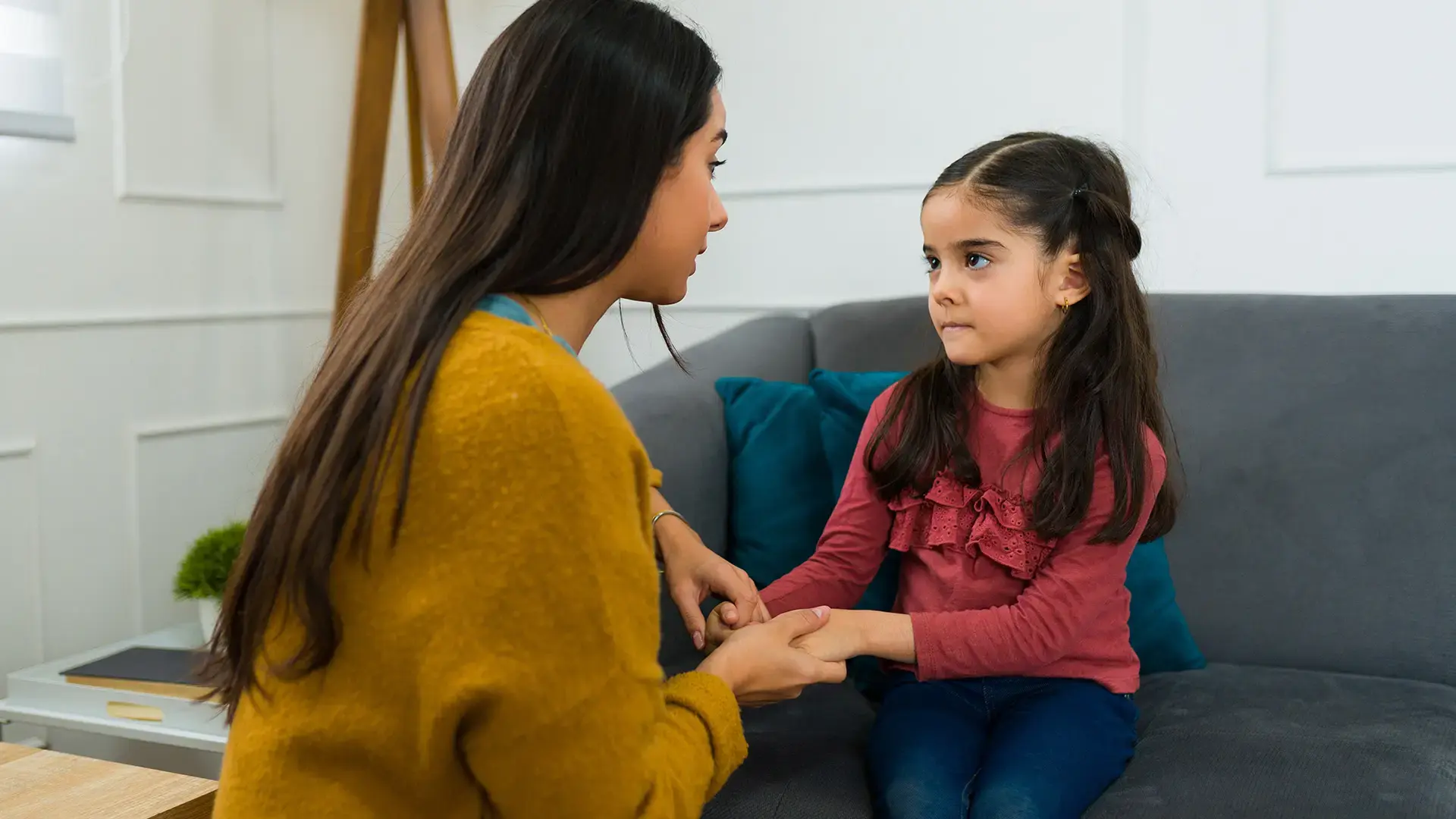Every year, 1 in 8 women will be diagnosed with breast cancer. Hearing the words “You have breast cancer” is life-changing. For many parents, it also brings another heart-wrenching question: How—and when—do I tell my kids?
There’s no perfect moment or script for explaining breast cancer to children, but experts agree that children should hear the news from you directly, ideally before they sense something is wrong. Kids are incredibly perceptive. If you delay the conversation too long, they may pick up on emotional changes, overhear adult conversations, or jump to their own conclusions—which can often be scarier than reality.
Timing is important. Choose a quiet, distraction-free moment when you can give your kids your full attention and answer questions with honesty and reassurance.
When to Tell Your Children About Breast Cancer
“Explaining breast cancer to children can feel overwhelming,” says Dr. Minas Chrysopoulo, board-certified plastic surgeon at PRMA. “But with love, patience, and age-appropriate language, it’s possible to help them feel secure and informed.”
Age-Appropriate Ways to Explain Cancer
- Toddlers (2–4 years old): Use simple, concrete terms. “Mommy is sick and needs medicine from the doctor to help her get better.” Visuals like picture books can be helpful.
- Young Children (5–8 years old): Explain that cancer is an illness that isn’t contagious. You might say, “I have something called breast cancer. The doctors are helping me fight it.”
- Tweens and Teens: Older children can understand more details, including treatment plans and side effects. Be honest about what you know and let them ask questions. Teens may also benefit from support groups or journaling.
Finding the Right Words and Using the Word ‘Cancer”
Avoid euphemisms like “boo-boo” or “lump” when your child is old enough to understand. Using the actual word cancer, while scary, prevents confusion and helps normalize tough conversations.
You don’t need all the answers. It’s okay to say, “I don’t know yet, but I’ll tell you when I do.” Let your child’s questions guide the conversation.
How Children May React to Your Breast Cancer
Every child processes difficult news differently. Some may cry, some may ask questions, and others may seem uninterested. All of these reactions are normal.
Emotional Reactions to Expect
- Sadness, anger, or fear about what’s happening
- Worry about the future or their parents’ health
- Guilt, especially in younger children who may wonder if it’s their fault
- Changes in behavior like clinginess, withdrawal, or acting out
Creating a Safe Space for Questions
Let your kids know it’s okay to talk about their feelings. Encourage questions, even if they ask the same ones more than once. Remind them often: “You can always come to me with anything.”
Books to Help Explain Breast Cancer to Children
Reading together can help children make sense of big emotions and complex topics. Here are some books designed to gently introduce the topic of cancer in a family-friendly way:
Mommy, R Your Boobies Broken? By Catherine Lutz
Written by PRMA patient and breast cancer survivor Catherine Lutz, this heartfelt children’s book walks readers through a young child’s experience after their mom is diagnosed with breast cancer.
She shared her personal experience with us:
“When you hear the words ‘Breast Cancer’ you instantly think you’ve been dealt a death sentence… Now, somehow, you must muster the energy and find the words to tell your kids,” says Catherine. “I had to tell my 3-year-old daughter and 9-year-old son… I realized the perfect words simply didn’t exist, nor was there a cookie-cutter approach. As parents, we know our kids better than anyone else…Timing is key. Less is more. Don’t be afraid to say ‘I don’t know.’ And most importantly—listen. It’s tough but not impossible.”
Catherine’s story reminds us that there’s no one right way to talk to kids about cancer, but sharing your love, honesty, and presence goes a long way.
Nowhere Hair By Sue Glader
This rhyming picture book gently explains cancer and hair loss to young children in an approachable, uplifting way.
What Happens When Someone I Love Has Cancer? By Sara Olsher
This book by illustrator Sara Olsher discusses not just explaining a breast cancer diagnosis to children but also how to navigate treatment, helping children cope when mom has cancer.
How to Support Your Children During Your Breast Cancer Journey
Kids thrive on routine, connection, and honesty. Here are some practical ways to support them:
- Keep daily routines as consistent as possible
- Encourage them to express emotions through drawing, play, or journaling
- Let teachers, coaches, or caregivers know what’s going on
- Offer physical touch and extra reassurance
- Revisit the conversation as treatment progresses
- Seek professional support if needed (pediatric therapists or child life specialists)
“Children can be incredibly resilient—but resilience doesn’t mean the journey is easy. You’re not alone in this,” says Dr. Chrysopoulo. “It’s okay to lean on your support system, just as your children lean on you.”
You Are Not Alone: Finding Support for You and Your Family
While catering to your children’s emotional needs is important, don’t neglect your own. No parent should have to go through this alone. PRMA is here to walk alongside you—offering expert care, compassionate support, and resources to help you and your family through every step of the journey.
If you’ve been diagnosed with breast cancer or are in the next phase of recovery, wondering what comes next, PRMA is here. Reach out to discuss your options for breast reconstruction after mastectomy and more.


